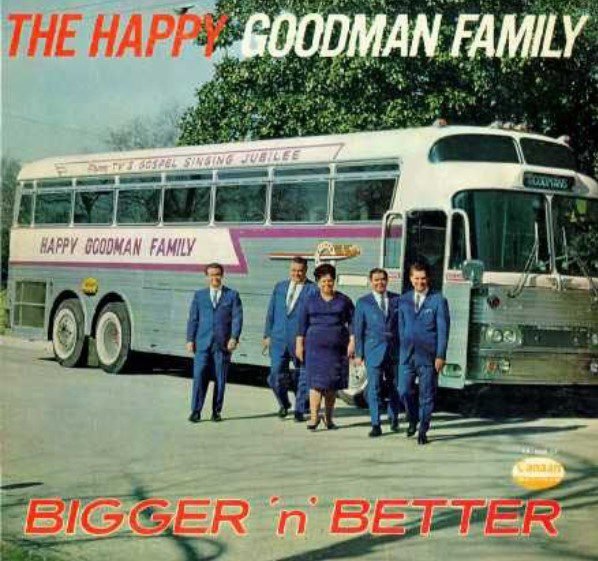
The Independent Fundamentalist Baptist (IFB) circles I ran in thought southern gospel music was God’s music. IFB churches are known for being anti-cultural, especially when it comes to music. Rock music? Contemporary Christian music (CCM)? Rap Music? Blues music? True Christians® don’t listen to such worldly, Satanic music, IFB preachers told their congregants. Yet, despite all the anti-music preaching, congregants — especially teens and college students — continued to listen to “worldly” music.
Reaction to country music was somewhat mixed. Many preachers divided country music into two categories: old style and new style. Old-style country was grudgingly permitted, but new style country was verboten — no different from rock music. Congregants were encouraged to listen to southern gospel music — country music with Jesus-y words.
As an IFB pastor, I regularly scheduled Southern gospel groups to sing at our church. Most of these groups were local/regional musicians who were willing to come sing for us for a love offering. Over the years, I had several well-known groups come to our church: Robbie Hiner and The Journeymen, to name two. In the 1990s, I went through a CCM phase, thinking that if I brought in name groups, doing so would attract people to our church. Groups who sang at our church included: David Meece, Sierra, Annie Herring (2nd Chapter of Acts), and NIA. As far as attracting new church members? A big, fat bust.
Ever the marketer, I advertised these concerts, hoping to draw large crowds. (Largest crowd? 400 for Sierra. Lowest? 20 for NIA.) Often, Ever the marketer, I advertised these concerts, hoping to draw large crowds. (Largest crowd? 400 for Sierra. Lowest? 20 for NIA.) Often, people from outside of our area would attend the concerts. Typically, these people were what I called diesel sniffers. Many of the musical groups traveled using diesel busses. Some people would follow their favorite group’s bus wherever it went. For them, southern gospel music was a drug; something that gave them a “spiritual” pick-me-up.
While IFB preachers attempt to paint southern gospel music as something that is “spiritual,” it is, in fact, entertainment. IFB preachers are known for their anti-entertainment preaching. It is well known that Fundamentalists take the fun out of everything. But, when it comes to southern gospel music, these same preachers ignore the fact that this style of music is a spiritualized form of entertainment.
I had a friend who was a devoted southern gospel fan. He and his wife attended numerous southern gospel concerts every year. His love for the music changed after he heard the McKameys sing twice in one week. What upset him, you ask? The McKameys sang their hit song, God of the Mountain. The acts were identical, right down to the lead singer gesticulating at the exact same time and kicking off her shoes. It was all a show. My friend thought these groups were spirit-led, when, in fact, they were well-paid professional entertainers.
Another friend of mine spent several years traveling with well-known southern gospel groups. He, too, thought doing so would be a spiritual endeavor for him. What he found, instead, was rampant alcohol consumption and immorality. Yes, southern gospel singers have groupies too.
I am fifteen years removed from preaching my last sermon. As I reflect on the decades I spent in the ministry, it’s hard not to conclude that entertainment played a central part in virtually every service. Whether it was my preaching or a quartet singing, the goal was to entertain people. Now, the word “entertainment” was never uttered. Such things were considered spiritual and supernatural. However, when the religious trappings are stripped away, what’s left is entertainment. People may have found my preaching helpful or profound, but make no mistake about it, they found me to be quite the entertainer. So it is with southern gospel music.
Bruce Gerencser, 68, lives in rural Northwest Ohio with his wife of 47 years. He and his wife have six grown children and sixteen grandchildren. Bruce pastored Evangelical churches for twenty-five years in Ohio, Texas, and Michigan. Bruce left the ministry in 2005, and in 2008 he left Christianity. Bruce is now a humanist and an atheist.
Your comments are welcome and appreciated. All first-time comments are moderated. Please read the commenting rules before commenting.
You can email Bruce via the Contact Form.
